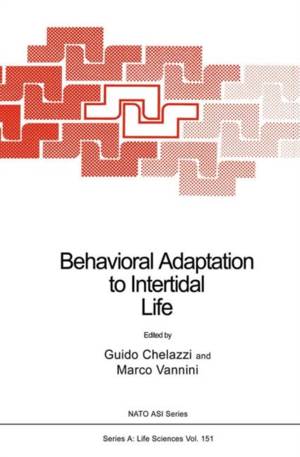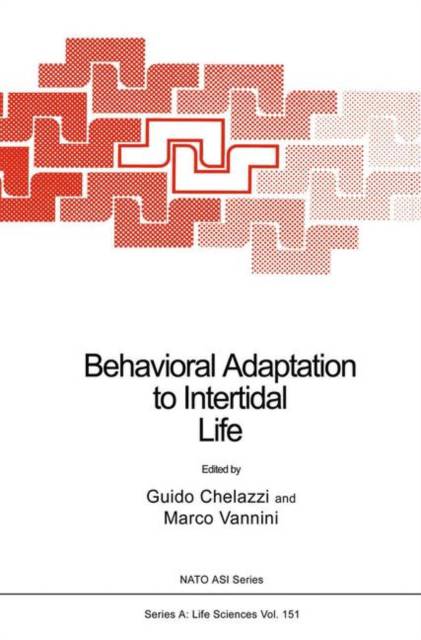
Door een staking bij bpost kan je online bestelling op dit moment iets langer onderweg zijn dan voorzien. Dringend iets nodig? Onze winkels ontvangen jou met open armen!
- Afhalen na 1 uur in een winkel met voorraad
- Gratis thuislevering in België vanaf € 30
- Ruim aanbod met 7 miljoen producten
Door een staking bij bpost kan je online bestelling op dit moment iets langer onderweg zijn dan voorzien. Dringend iets nodig? Onze winkels ontvangen jou met open armen!
- Afhalen na 1 uur in een winkel met voorraad
- Gratis thuislevering in België vanaf € 30
- Ruim aanbod met 7 miljoen producten
Zoeken
€ 334,45
+ 668 punten
Uitvoering
Omschrijving
The NATO Advanced Research Workshop on "Behavioural Adaptation to Intertidal Life" held in Castiglioncello, Italy (May, 1987) was attended by 50 participants, most of whom presented requested lectures. It was perhaps the first time that specialists of various animal groups, from cnidarians to birds, were able to meet and discuss the importance of behavioural adaptation to this peculiar, sometimes very harsh environment. But the taxonomic barrier is not the only one which the meeting attemped to over- come. Lately, the research on intertidal biology has spread from pure taxonomy and static analysis of community structure to such dynamic aspects as intra- and interspecific relationships, and physiological mechanisms aimed at avoiding stress and exploitation of limited-resources. This increasing interest stems not only from an inclination for this particular ecological system and some of its typical inhabitants, but also from the realization that rocky and sandy shore communities are suitable models for testing and improving some global theories of evolutionary biology, behavioural ecology and sociobiology. The number of eco-physiological and eco-ethological problems emerging from the study of intertidal animals is fascinatingly large and a complete understanding of this environment cannot be reached using a strictly "reductionistic" or a pure "holistic" approach.
Specificaties
Betrokkenen
- Auteur(s):
- Uitgeverij:
Inhoud
- Aantal bladzijden:
- 524
- Taal:
- Engels
- Reeks:
- Reeksnummer:
- nr. 151
Eigenschappen
- Productcode (EAN):
- 9781489937391
- Verschijningsdatum:
- 3/01/2014
- Uitvoering:
- Paperback
- Formaat:
- Trade paperback (VS)
- Afmetingen:
- 156 mm x 234 mm
- Gewicht:
- 743 g

Alleen bij Standaard Boekhandel
+ 668 punten op je klantenkaart van Standaard Boekhandel
Beoordelingen
We publiceren alleen reviews die voldoen aan de voorwaarden voor reviews. Bekijk onze voorwaarden voor reviews.











